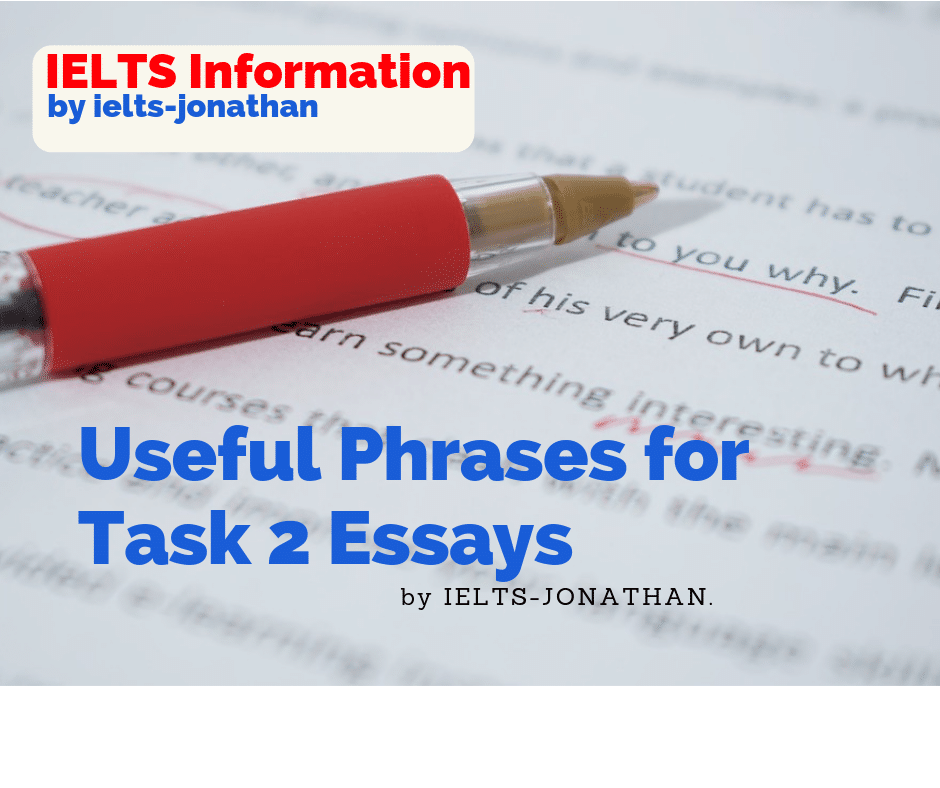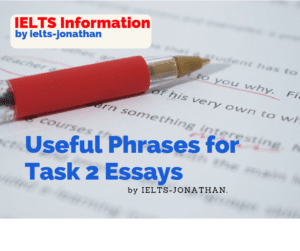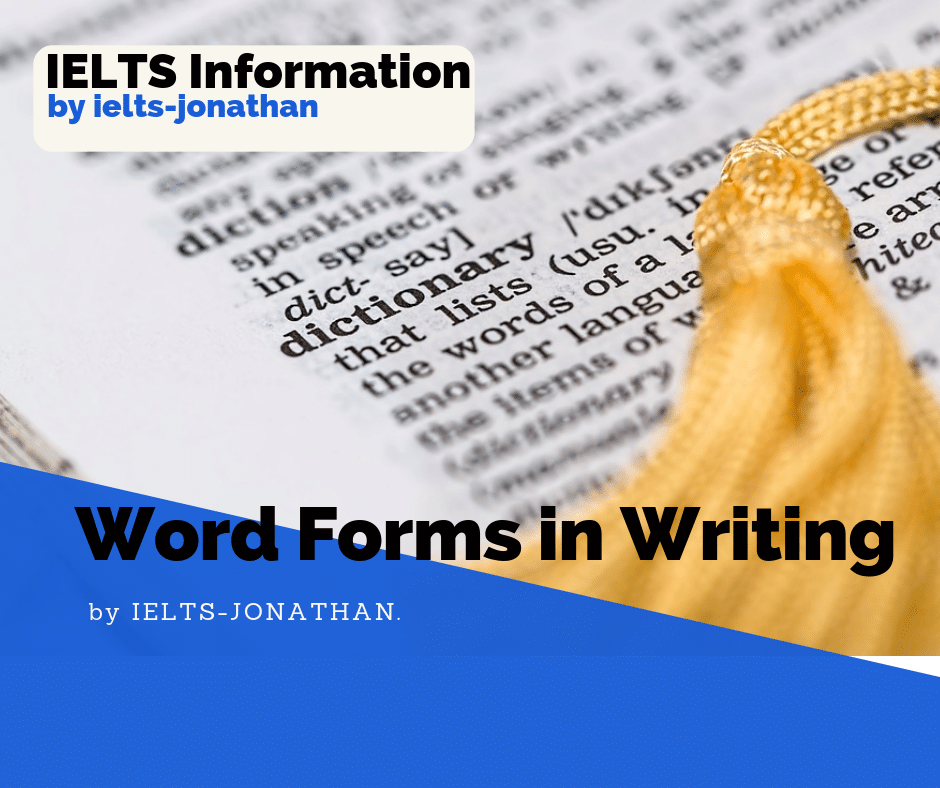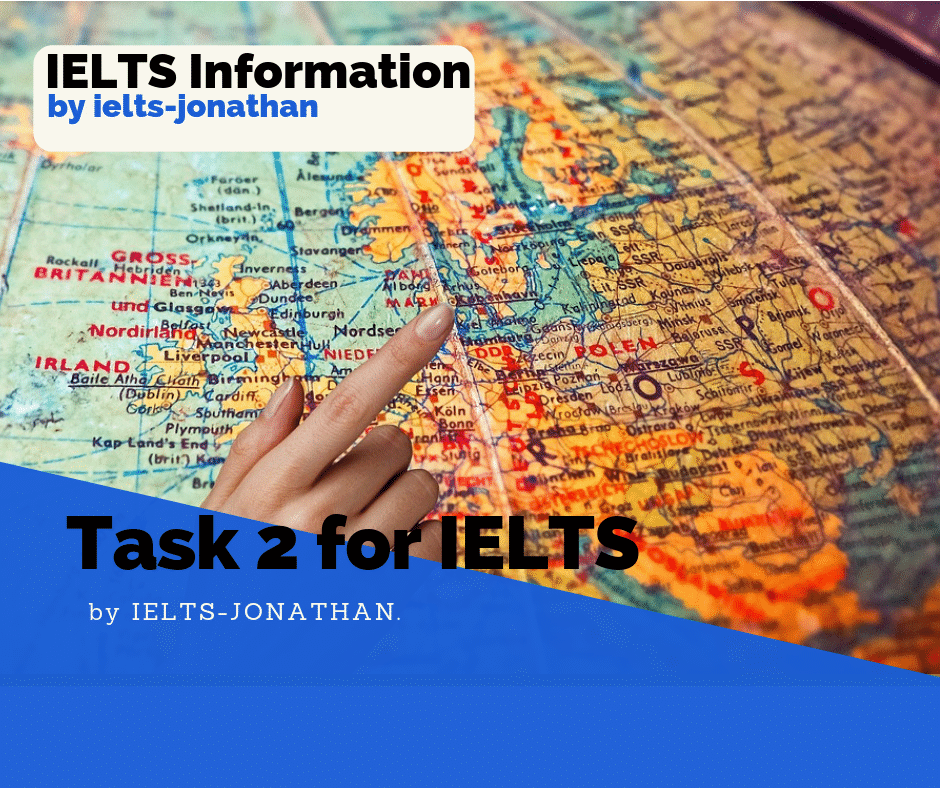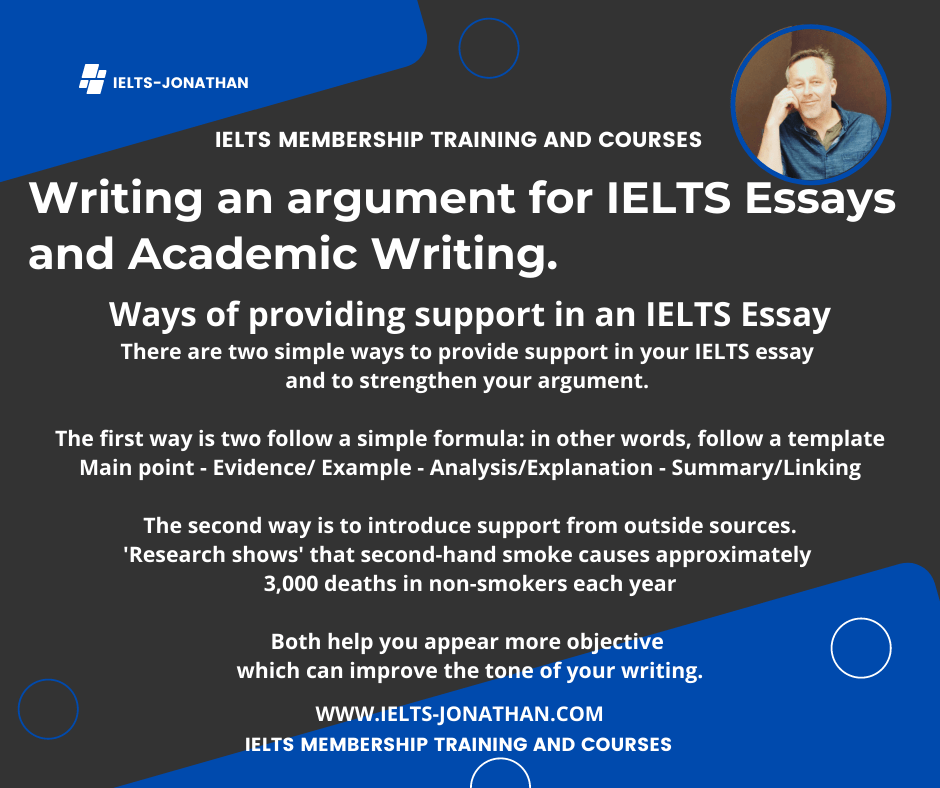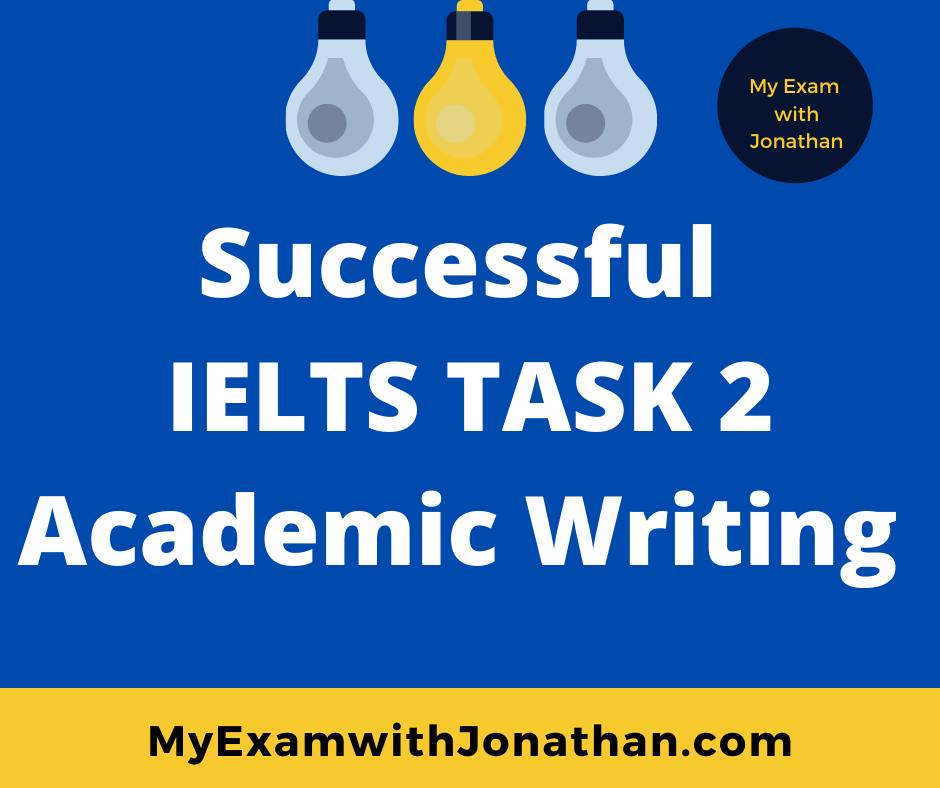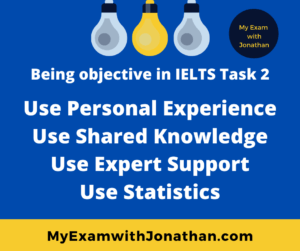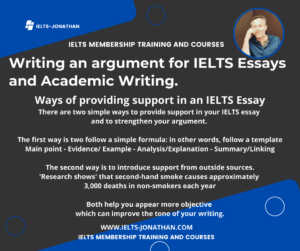There are some simple tips for writing great introductions and conclusion in IELTS
When you go to start to write for Task 2, it’s often difficult to come up with relevant ideas.
This means it’s even more important that you’re equipped with some suitable and relevant introductory and concluding sentences.
A feature of high-level writing is often a combination of ‘noun phrases’ and passive sentences.
These are features of good academic English.
So, this post will provide a number of exemplary sentences that can be adapted and incorporated into your own writing.
Useful Phrase 1 – Suitable for introductions
A simple introduction.
This essay will analyse ‘this issue’ using the examples from… …to demonstrate ‘a number of points’ and support arguments.
Of course, you have to provide your own examples in accordance with your particular topic.
For instance:
This essay will analyse this issue using the examples from wartime countries and conflict zones to demonstrate points and support arguments.
A more advance introduction using noun phrases and the passive tense is
Whether ‘something of something’ will be considered from a number of perspectives before a conclusion is made.
“Whether ‘the responsibilities of children within the family unit should be increased’ will be considered from a number of perspectives before a conclusion is made.”
It is widely recognised that ‘the issue of something’ is one of the most challenging issues for the western world/the developed world/developing world/the world and a number of aspects of this will be discussed and considered.
“It is widely recognised that ‘the effective and efficient recycling of plastic waste’ is one of the most challenging issues for the western world/the developed world/developing world/the world and a number of aspects of this will be discussed and considered.”
The ‘issue of something’ will be discussed by considering the advantages and disadvantages and using a number of examples.
The ‘the future application of e-commerce’ will be discussed by considering the advantages and disadvantages and using a number of examples.
Useful Phrase 2 – suitable for body paragraphs (opinions)
When introducing an opposing thought, instead of using just “but” or “However,” you can a phrase such as:
“However, it should be remembered (that)…” and add the opposing point.
Useful Phrase 3 – suitable for body paragraphs (examples)
Sometimes it is possible to cite examples from research or studies made, using the phrase,
“For example, a recent study by _________ has shown that…”
“For example, a number of studies have shown that…”
“For example, a recent studies by _________ have shown that…”
“For example, research by _________ has shown that…”
For instance:
For example, a recent study by the National Sports Association has suggested that… (then supply the details of the findings).
Useful Phrase 4 – suitable for body paragraphs
It is fairly easy to comprehend the arguments as to why this proposal has been made.
There are at least aspects to this line of thought.
There are a number of arguments to support this point, the first being…….,
The issue of __X__ in developed/developing countries has grown in importance over the past few decades.
The issue of __X__ on most continents has increased in importance over the past few years.
Useful Phrase 5 – suitable for supporting sentences
Instead of saying “There is proof that…” you can say, instead:
There is evidence to suggest that…
For instance:
There is ample evidence to suggest that scientists will need to develop alternative forms of energy production.
and
There is some evidence to suggest that local governments will be implementing …
Useful Phrase 6 – suitable for supporting sentences
Give your findings a supportive introduction using the phrase:
Numerous studies have consistently found that …
Then provide your conclusion, for instance:
Numerous studies have consistently found that children from economically deprived families…
and
Numerous research have found that students who learn more that one language have increased life chances in terms of both quality and standard of life.
Useful Phrases 7 – suitable for strengthening an argument by being specific
Instead of generalising or citing samples provide a number of examples. For instance:
Replace:
Recent electronic developments have…
with
Electronic developments such as the e-commerce, the smartphone, and personal on-line payment systems have drastically increased worker productivity.
Replace:
Serious diseases are a daily feature in the developed world…
with
Serious diseases such as obesity, alcoholism and smoking related diseases are a daily feature in the developed world and can be a significant cost on economies.
Useful Phrase 8 – suitable for conclusions
As such it can be concluded that…
Therefore, it can be summarised that
In short, it can be suggested that
These phrases are specifically useful during a closing argument.
Example: In short, it can be suggested that in a widely globalised world where technology is freely accessible to the majority of citizens in both the developed and to some extent the developing world, social media marketing has a strong influence of what consumer buy.
Summary
You may need to add just a few phrases to complete the phrases above.
To improve your grammatical range and accuracy it is important to practice the same structures I have given you but using different verbs and nouns.
You can find more structures by reading academic material and copying phrases you think you could adapt in your essays.
Academic material is easily found by searching in Google like this: Your topic (plastic waste) + .edu + pdf -this will usually result in academic reports about your given topic.
You Next Step!
The next thing you should do is make notes and practice using the phrases in your own sentences. This means that you will practice them for fluency and so you can adapt them to you own test situation, however, remember, these phrases can’t just be copied. Just copying will probably lower you score if they don’t coherently fit your essay.
You must make sure that the way you use the phrases that fit your essay perfectly to maintain coherence in thought and correct grammatical structures.
For more advice you can look at my posts on Task 2 or the dedicated page to Task 2 Writing.
So remember, ‘without practice, improvement won’t happen’ and a ‘little action, day by day, makes great progress’
IELTS Writing Posts
The Best Approach to Task 2 Writing
Paragraphing in Task 2 Writing
Writing – Benefits of a Foreign University Education
I’m Jonathan
I’ve taught IELTS and University English in more than a dozen universities and schools around the world.
I’m a parent, traveller and passionate about language teaching and helping students achieve their dreams.
Whilst living in Austria or working in Asia, I run IELTS courses to help students get to where they want to be.
If you are serious about IELTS, connect with me to see how I can help you.

